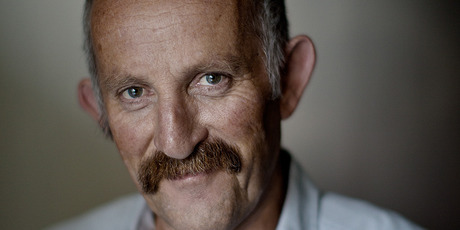Gareth Morgan’s 4 part series on the treaty of Waitangi has come in for some righteous criticism from many Maori, but I also think that Gareth has begun a conversation that will have more traction amongst those who need to change than all the Maori voices in NZ could achieve.
Yes Gareth is speaking as a privileged rich pakeha to other privileged rich pakeha, but that’s kinda the point. I think we forget that many male pakeha have absolutely no sense of how far their privilege has got them and as such are totally devoid of any perspective beyond ‘I worked hard, why can’t you’.
The dominant culture never asks questions about how they have benefited from injustice and Gareth’s commentary allows those who have benefited from that injustice a means to enter into the debate without all their ‘not all men’ baggage.
Where I very much agree with Morgan is in the power sharing arrangements needed to give the Treaty real meaning via a Upper House…
One of the problems with NZ politics is that we have a unicameral Parliament, that means we just have one chamber with no upper house. This means NZs Parliament is one of the most powerful Parliaments in the world. It allows for legislation to be read straight into law and is one of the reasons why the neoliberal revolution was so ruthless and impossible to reverse.
I think one solution to the Waitangi Tribunal ruling is to consider a NZ Parliament Upper House that has 50-50 representation between Maori and Pakeha. If Sovereignty was never signed away, then the Government of today has a responsibility beyond paltry compensation for past injustices , it must provide real power sharing solutions.
Having a 50-50 Upper House with the power to delay legislation that was not in the best interests of the Nation when it comes to Treaty issues would stop Government’s from fire sales of national assets and prevent things like the Foreshore and Seabed legislation from becoming law.
An Upper House would be seen as a guardian of the Treaty for the maintenance of public well being over private gain, it would show real power sharing and for Pakeha, it would represent a political body that protect their public interests as much as Maori interests.
…if we want to be serious about living up to the promises of the Treaty, we have to be serious about sharing power.
I’m glad Gareth has joined the debate.






Not just for the Tiriti o Waitangi, but also to stop so called trade agreements like the TPPA, which elevate the rights of shareholders in trans national corporations above the the sovereignty of the nation and its citizens.
Yes, it would be good for all of the country to have a sense of it’s own sovereignty, rather than expecting English privy council etc to pick up the pieces as in days of yore. An upper house would go a long way to providing this and it would be long overdue.
Our current system of having a Governor General to represent the Queen seems archaic really, not to mention unworkable.
I think bicameralism is a mistake. I just do not see any need for it in countries that aren’t imperial in size.
We should be moving towards a greater emphasis on a New Zealand monoculture in which secondary cultures (Maori, English, Indian, Chinese, etc) play a supporting and non-legalistic role.
The monoculture, or primary culture, should take the best parts of each in fit them if/where they don’t clash.
I think most primary schools should be taught in Maori and most secondary schools should be taught in English.
I would rather not have a minority (~15%) culture with veto over the others. Culture should be dynamic not static.
I think it’s a terrible idea in a society that strives to be equitable to base political power on race.
I have both Maori and European heritage and believe culturally Maori will always have a special place in our shared society but the moment you codify power differences around race you breed division and start another cycle of have and have nots.
There are many wrongs that need to be righted as we move forward as a nation. I don’t believe basing rights and political power on race (especially as so many of us are now of mixed heritage now) will improve integration or help nurture a sense that we all belong to one story or future that we are creating together.
Comments are closed.